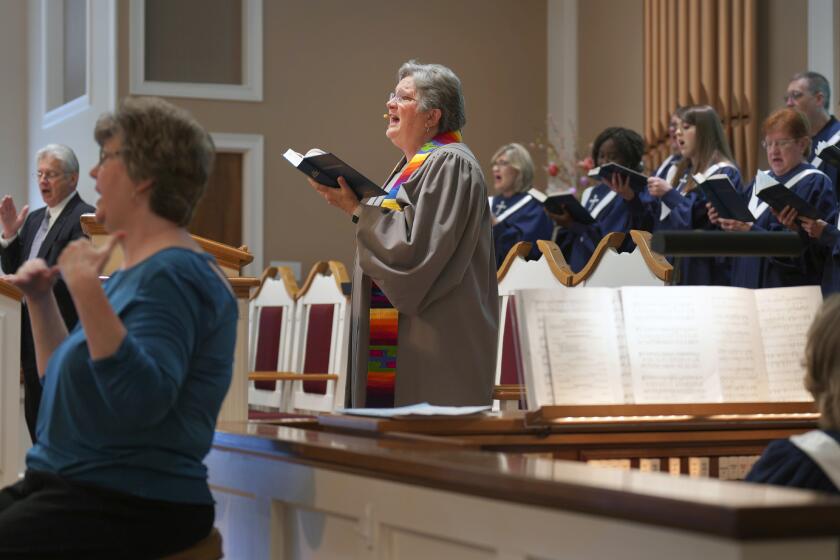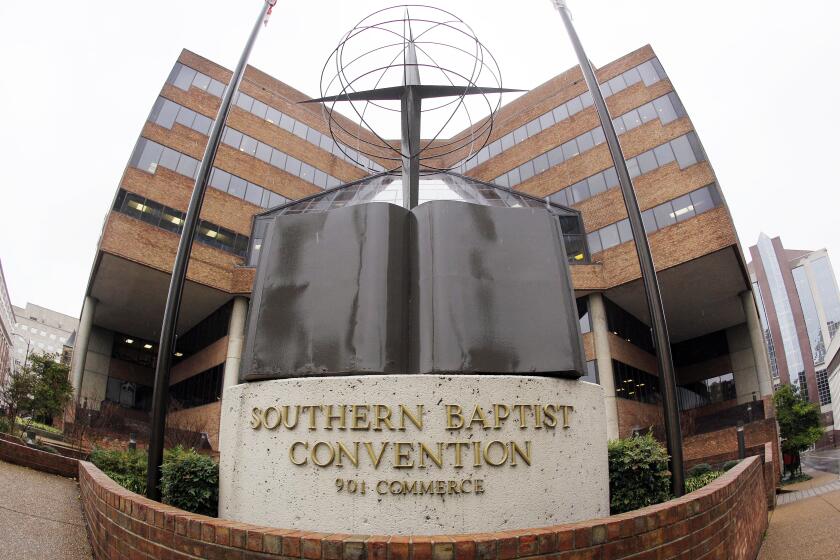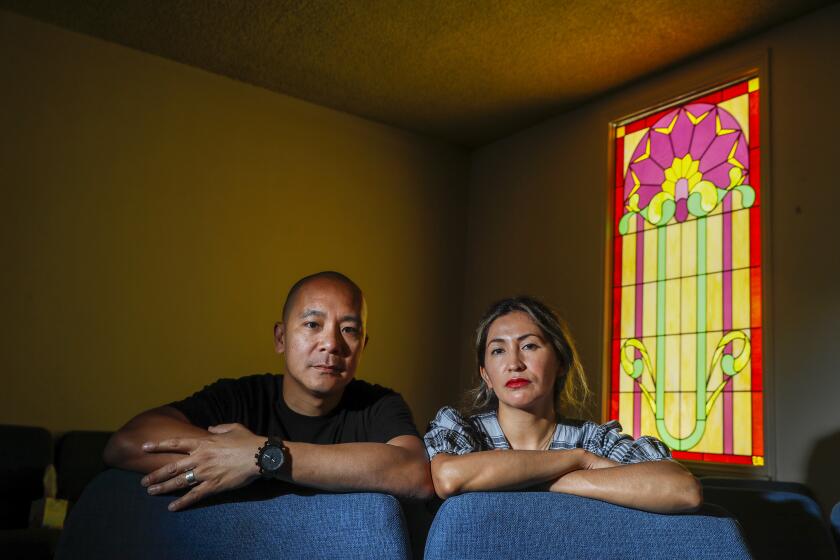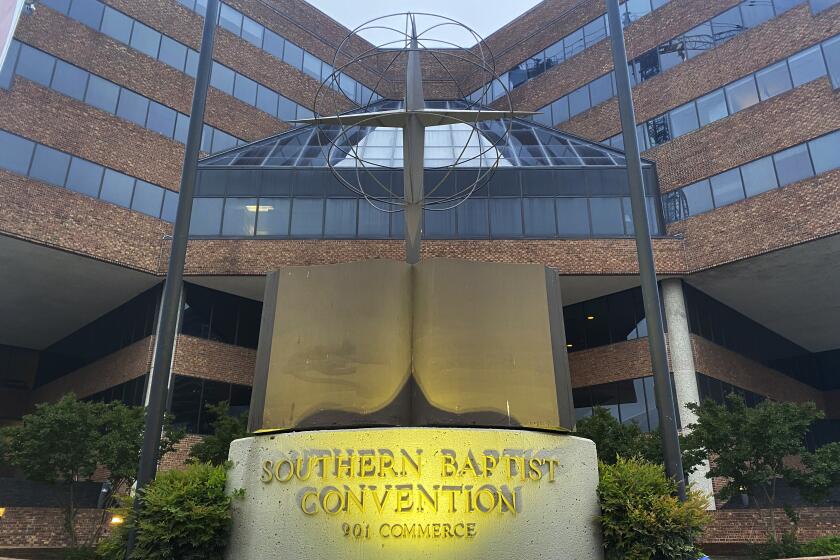Opinion: What is the Southern Baptists’ problem with women?
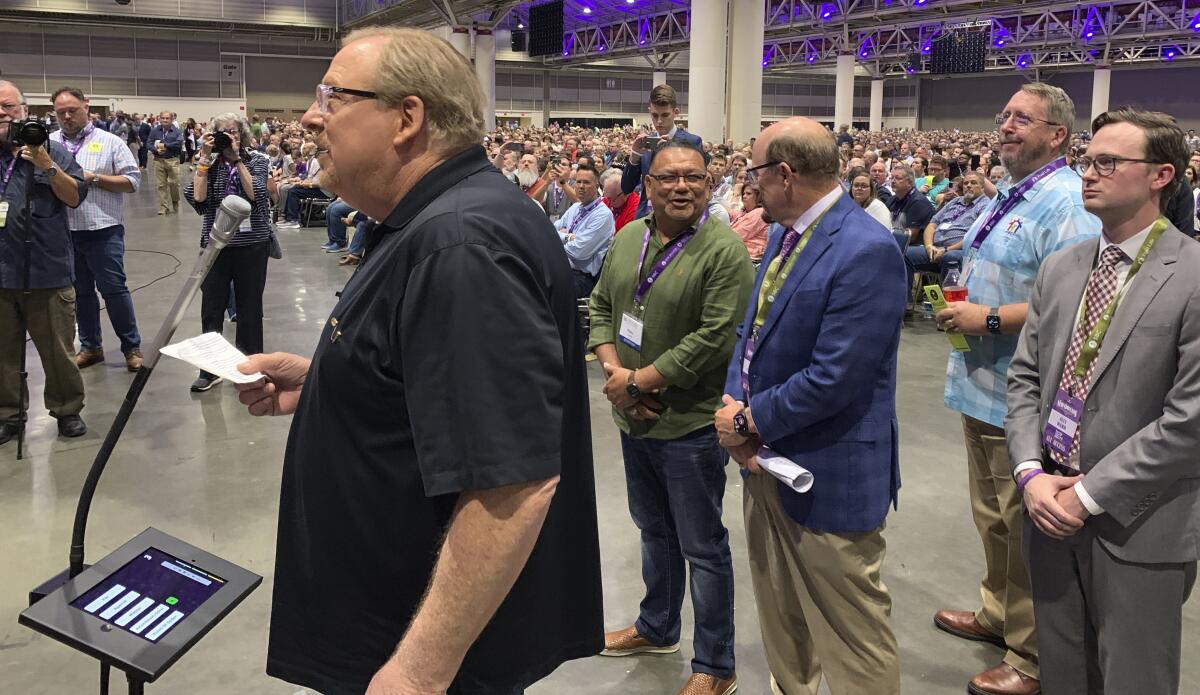
At their annual meeting in New Orleans this week, Southern Baptists doubled down on their crusade against female clergy. “Messengers” (delegates) of the nation’s largest Protestant denomination ratified the expulsion of two congregations — one of them Saddleback Church in Lake Forest — for condoning the ordination of women.
The venue was significant. In New Orleans in March 1967, Paul Pressler, a Texas judge, and a seminary student named Paige Patterson met at Café du Monde and, according to durable legend, strategized the conservative takeover of the Southern Baptist Convention. Fundamentalists within the denomination insisted its membership was on a slippery slope to theological liberalism by allowing women pastors and by refusing to affirm biblical inerrancy.
The Southern Baptist Convention rejected appeals from Saddleback, voting to finalize the ouster of the Orange County megachurch over its female pastors.
Although I contend that the term “liberal Southern Baptist” is an oxymoron, the conservative takeover of the Southern Baptist Convention in the ‘70s set in motion a purge of all vestiges of “liberalism” from the denomination. The fundamentalists, exploiting the powers of the denomination’s president, systematically began to populate church agencies and especially seminary boards with like-minded conservatives.
Many lifelong Southern Baptists still bear the scars of those purges.
Once the denomination’s agencies and educational institutions were locked down, the fundamentalists trained their sights on the supposed scourge of women pastors. Abandoning the bedrock Baptist principles of liberty of conscience and congregational autonomy, which vested the powers of ordination in local churches not the SBC, the new regime passed a resolution in 1984 that restricted women to “work other than roles entailing ordination.”
The Southern Baptist Convention has ousted Saddleback Church because of its female pastors. Benjamin Cole, the Baptist Blogger, explains how this represents the SBC’s drift to the right.
A resolution isn’t a commandment, however, and some congregations, asserting the Baptist principle of autonomy, refused to comply. Besides, even an inerrant Bible offers more than one way to interpret women’s roles.
Saddleback Church went further than most. Founded in 1980 by Rick Warren, and one of the largest congregations in the denomination, Warren told me years ago that the church wore the label “Southern Baptist” lightly. “They need us more than we need them,” he said.
No longer, apparently. After Saddleback ordained three women and announced that a husband-and-wife pastoral team would replace the retiring Warren, the denomination found the church “not in friendly cooperation” with the SBC. Warren appealed the ouster at the annual convention in New Orleans.
A scathing report documents how Southern Baptist leaders stonewalled and denigrated survivors of clergy sexual abuse.
“If doctrinal disagreements between Baptists are considered sin, we all get kicked out,” he reminded the famously contentious Baptists, adding that the denomination’s doctrinal statement contains more than 4,000 words. “Saddleback disagrees with one word,” he said, speaking metaphorically. “That’s 99.9999999999999 in agreement! Isn’t that close enough?”
The delegates roared back, “No!”
“The issue of women serving in the pastorate,” R. Albert Mohler, president of Southern Baptist Theological Seminary, told the crowd, “is an issue of fundamental biblical authority that does violate both the doctrine and the order of the Southern Baptist Convention.”
A Southern Baptist pastor on thinking, talking and praying about the recent sex abuse scandal.
It’s also an issue of fundamentalists’ cultural fears.
As Joshua Abbotoy, a pastor whose congregation left the Southern Baptist Convention because it had become too liberal, told the New York Times, conservatives regard women pastors “as an early harbinger of a raft of other changes,” including questions about whether “the human person is differentiated between two genders.”
Another pastor suggested that permitting female clergy would soon “allow the marriage of homosexuals, too, and then even allowing homosexuals to serve as pastors.” Slippery slope.
As the New Orleans meeting ended, the Southern Baptists still hadn’t fully grappled with a damning 2022 report detailing sexual misconduct among prominent figures within the denomination. But they overwhelmingly upheld the ouster of Saddleback and Fern Creek Baptist Church in Louisville, Ky., where Linda Barnes Popham has served as pastor for 30 years.
Leaders of the Southern Baptist Convention say that several of their denomination’s major entities are under investigation by the U.S. Department of Justice.
The convention also for the first time approved an amendment to its constitution — taking the issue beyond a mere resolution: All congregations must have “only men as any kind of pastor or elder as qualified by Scripture.” The amendment must pass two years in a row to go into effect.
Why is it, I wonder, that conservatives believe “slippery slopes” apply only to liberals? The sad history of the Southern Baptist Convention over the past four decades suggests that narrow, constricted readings of the Bible lead to anger, condemnation and exclusion, even abuse.
The Jesus I know said, “Come unto me.”
Randall Balmer, an Episcopal priest, teaches at Dartmouth College and is the author of “Mine Eyes Have Seen the Glory: A Journey into the Evangelical Subculture in America.”
More to Read
A cure for the common opinion
Get thought-provoking perspectives with our weekly newsletter.
You may occasionally receive promotional content from the Los Angeles Times.
